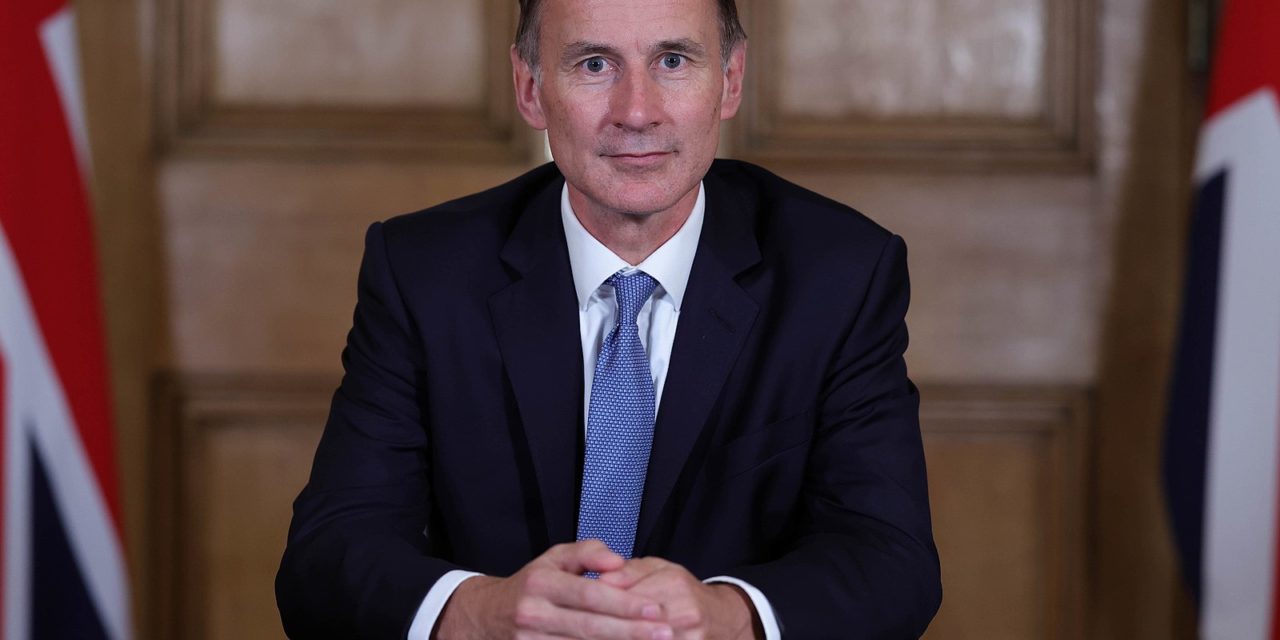Thames Tap sponsors and partners saw little to celebrate in terms of planning reform after Chancellor Jeremy Hunt delivered his Autumn Statement on Thursday.
And most gave a lukewarm reception to many of the main points of the statement.
Derek Ching, partner at Boyes Turner, said: “Key issues are the macro ones of enforced belt tightening, meaning that taking on new mortgage debt may be less attractive than before, especially with further interest rate increases expected. As such there will be continued dampening of demand for house moves.
“This comes at the same time as the Help to Buy scheme is coming to an end next April, marking the end to a significant taxpayer subsidy to home buyers which has helped prop up the development industry for several years.
“Some have argued that it has simply inflated house prices (and developer profits) by keeping demand at an artificially high level and that next year we will simply revert to ‘normal’. Ending this subsidy may unveil how far house prices have gone beyond what is affordable for younger buyers and so have a significant impact on demand for new homes particularly at the bottom end of the market.
“The reduction in extent of the proposed investment zones will mean disappointment for those who saw them as part of the levelling up agenda. The more focussed proposals will still see the benefit of relaxed planning rules for some but, for the rest of us, we have to continue to struggle with a sclerotic planning system where even worthwhile projects have to suffer major delays.”
Philip Waddy, managing director of WWA, said: “Additional investment in health and education is welcome as is continued spending on infrastructure projects but I’m unclear whether the Government really understands the critical role business and the private sector can play in growing the economy.
“More needs to be done to relax controls and speed up planning so that we can build ourselves out of recession. We have to now await news of planning reform from DLUHC.”
David Jones, managing director of Evans Jones, said: “The November Autumn Statement broadly aligns with the various briefings and leaks. The Government laid the foundations for tax hikes and that is what we got.
“From a business perspective it is positive that the financial markets and bond rates have settled following Rishi’s appointment as PM. The big question remains, whether such drastic actions would have been required if the Truss/Kwasi fiasco had not occurred.
“Certainly, the fiscal crash following the Kwasi intervention, coupled with the fuel crisis has undermined confidence in the market which will take much longer to recover from.
“In terms of planning, the Government remain focussed on infrastructure, particularly, with a commitment to accelerate the delivery of projects in the Government’s current portfolio.
“There has been a shift in the focus away from Truss’s flagship ‘investment zone growth programme’, with the new focus of investment zones being on leveraging research strengths to help build clusters for new growth industries.
“The much-criticised dilution of environmental and planning controls in investment zones has been ditched. The re-commitment to devolution in the Greater Manchester and West Midlands combined authorities, confirms a shift back to the pre-Truss era in planning.
“In summary, fiscal policies – very much as expected, planning reforms – relatively muted and certainly not growth focussed. The statement very much looks to be laying the foundation for the next election, protecting the Government’s electorate with retention of the pension triple lock and not proposing any major planning changes which could upset Middle England voters and backbenchers.”
Mike Shearn, chief operating officer for Haslams Estate Agents, said: “Starting with a positive, there is still very much life in the housing market. Thankfully there was no cliff edge after the disastrous mini-Budget and, whilst transactions are down, we are selling good numbers of properties and the lettings market is stronger than it ever has been. I am hopeful this will continue.
“In terms of the November 17 Budget, I suppose it could have been worse! It’s tough medicine but at least everyone now has some more certainty about their household finances over the next few years and that in itself will mean that people can make informed decisions about their lives.
“I had hoped for some form of stimulus to help the housing market. There remains fundamental supply-side issues with both the rental and open-market housing markets.
“Whilst successive governments have championed home-ownership and generation rent, their actions have actually reduced stock and/or increased demand, which ironically has proved to put many peoples’ aspirations of home ownership and renting further out of reach.
“I fear the lack of stimulus and the changes to capital gains tax and stamp duty (among others) will only further acerbate problems with the market and prove a barrier to entry for landlords and first time buyers: the lifeblood of the market.”
Steven Sensecall, head of planning & development for the South and South West for Carter Jones, said: “The Government is intending to refocus the investment zones programme and to use this initiative to ‘catalyse a limited number of the highest potential knowledge-intensive growth clusters’.
“Despite what it describes as ‘a time of significant challenge for the UK and global economy’ the Government is intending to increase spending in R&D by a third. This change in direction on investment zones and increase in spending on R&D bodes well for Oxfordshire, which has been described as the UK’s innovation engine, and our clients, Harwell Campus, ARC Oxford and Culham Science Centre, cornerstones of the Oxfordshire science cluster which are bringing forward globally significant science & technology related development.”
Dan Lampard, senior director and head of the Thames Valley office of Lichfields, said: “With ‘stability’ as a cornerstone, alongside the primacy of the OBR, the Chancellor’s Autumn Statement contained none of the customary rabbit-out-the-hat announcements (perhaps not surprisingly given how the Kwarteng rabbits spooked the market).
“There was, however, little in the statement to encourage investment opportunities within the property sector
“The development sector has been unified in its concerns about local government resourcing which is currently holding back development across much of the South East.
“In a vox pop session at last week’s Oxford Social, the planning system was described as both ‘under resourced’ and ‘constipated.’
“It is therefore concerning that, after seeing DLUHC budgets cut by more than half between 2009/10 and 2015/16, they are set to fall again, with the IFS finding DLUHC is facing largest proportional reduction in post-2025 spending plans, despite increasing pressures.
“The ability to raise council taxes will likely be used by many authorities but social care will absorb most of this revenue. The use of planning performance agreements (PPAs) to boost local authority resources is surprisingly inconsistent across the Thames Valley with some seemingly reluctant to accept such one-off funding opportunities – and the increased expectations that they bring.
“One of the few supply side reforms left for the Government that could bring growth is the upcoming planning reforms. As recent research from Lichfields and the HBF set out, getting this wrong could deal a £17bn blow to the economy and £1.2bn in tax receipts. The need to incentivise and provide a clear pathway for private sector investment, through forward planning and delivery, has never been greater.”
Nick Burrows, chairman and partner at Blandy & Blandy, said: “The Autumn Statement arguably contained a mix of real-world cuts and changes, alongside others, primarily designed to offer reassurance and help stabilise the economy.
“The next 12 months will provide a strong indication as to whether these measures are having the desired impact. As always, Blandy & Blandy is here to advise our clients, private and commercial, on the immediate and longer-term impact of this week’s announcement and any resulting considerations and actions.”
Image: HM Treasury and The Rt Hon Jeremy Hunt MPPhotographer: Andrew Parsons, OGL 3 <http://www.nationalarchives.gov.uk/doc/open-government-licence/version/3>, via Wikimedia Commons
© Thames Tap (powered by ukpropertyforums.com).
Sign up to receive your free weekly Thames Tap journal here.

















